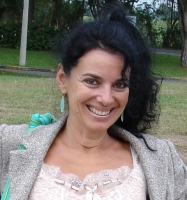“ICDP is based on the idea that human beings are by nature social, and that also means that we, as human beings, are particularly vulnerable in our social relationships because that is the domain of our suffering and our happiness. So when we are deprived of normal human contact, there is suffering and loss, as we can see in institutionalized children. This is where ICDP comes in to restore and revive normal human caring interaction. And this does not only apply to care for babies and young children, it applies at all levels of life from babies to youth, adults and elderly – we are all living in relationships with each other, and the quality of these relationships decides how we feel, cope and develop. Therefore ICDP is in principle applicable at all these levels…” – Professor Karsten Hundeide



Photos above: Karsten Hundeide, Henning Rye and Nicoletta Armstrong
International Child Development Programme began developing in 1985 but an organisation was not founded until 1992 when it was registered as an international foundation, in Oslo, Norway. Professor Karsten Hundeide led the organization as chair till he died in September 2011. Markus Hoff Berge, one of the founders of ICDP, has been the main sponsor of ICDP core operation since its beginning. Nicoletta Armstrong is the current chair. As one of the ICDP founders and board member since the beginning, Nicoletta has been developing with Karsten all aspects of ICDP, didactic, evaluative, promotional, as well as organizational. She established cooperation with UNICEF and pioneered an adapted version of ICDP called “Tambien soy persona” in large scale projects in Latin America.
DEVELOPMENT OF ICDP
Before its registration as a foundation, ICDP operated as a small team of experts linked to the universities of Oslo and Bergen. The preparatory work on developing ICDP was started in early 1980ies, led by Karsten Hundeide and Henning Rye. The idea was to formulate a psychosocial intervention programme based on psychological research and literature in developmental psychology. In 1986, contact was established with Pnina Klein, who was working with a parenting programme based on Ruven Feuerstein’s theory of the “mediated learning experience” (MLE). Other main influences include the therapeutic work of the Orion Group, developed in Holland; the research in early communication, particularly the work of Colwyn Trevarthen and Daniel Stern; the ideas of Lev Vygotsky and of his followers, particularly Jerome Bruner, David Woods and Barbara Rogoff.
ETHOS
The ethos of ICDP is to provide for human care by activating empathy and education of both caregivers and their children. We aim to implement knowledge from scientific research for the benefit of disadvantaged and neglected children, through a simple and culturally adaptable programme for children’s caregivers. Our work is based on the principles that are laid down in the UN Convention on the Rights of the Child. ICDP may participate directly or indirectly in activities run by other humanitarian organisations having corresponding objectives.
ENDORSEMENT BY WHO AND UNICEF
In 1993, the psychosocial intervention programme developed by ICDP was evaluated by the Division for Mental Health of the World Health Organisation (WHO) in Geneva. As a result, the WHO adopted ICDP as a mental health programme and the ICDP manual was published as a WHO/ICDP document. ICDP has also developed close cooperation with UNICEF, which in some countries lasted for many years and resulted in large scale ICDP implementation.
COMPETENCE BUILDING WORLDWIDE
ICDP is a competence-building organization in the field of psycho-social and educational care of children at high risk. Our work is directed towards vulnerable children, their caregivers and families. ICDP is a flexible programme that has been tested out in different societies all over the world from Indonesia to Latin American, from South Africa and Angola to Scandinavian countries and Western-Russia. There is evidence that the programme works in all these different societies and with caregivers from very different educational backgrounds.
PROMOTING CHILDREN’S RIGHTS
The aim of the programme is to strengthen parents’ and caregivers’ involvement with their children in a positive way, to give them confidence in their own capacity as carers, to facilitate those relationships that support children’s development and to prevent those relationships and conditions that may lead to neglect and abuse of children. In this way our programme is closely linked to the work of promoting children’s rights and through its emphasis on empathy and compassion for the other, it also contributes to peace building processes.
The main purpose of our work is to reach vulnerable children whose lives have been negatively affected by poverty, war, uprooting, family-conflicts and violence, children in camps and different types of institutions. The ICDP programme can be used in the area of prevention as well as rehabilitation. It can be inserted as one of the components in an integrated programme of assistance, which covers other areas, such as health, nutrition, information about HIV and AIDS etc.
MOBILISING LOCAL RECOURCES
ICDP is working in a community based way, by training and mobilising resource persons in local networks and organisations, so that they can spread the ICDP programme to caregivers in their own communities. Through this approach we are able to reach more caregivers, families and children at risk than if we used the traditional clinical or institutional approach employed by many of the other NGOs working in this field.
EMPOWERMENT
Although we actively encourage the participation of men, in practice we have been working mostly with groups of women and networks in which women are strongly involved. This is so because children’s caregivers in most traditional societies are still women. Empowerment of women is therefore implicit in our programme.
SUSTAINABILITY OF OUR WORK
When the initial training is over and the quality of the work of a local team has been evaluated, we withdraw. The point is to prepare a local team to take over the training and the implementation of our programme. In order to ensure sustainability, we try to insert the ICDP programme into existing institutional structures, like government networks, leading NGOs working in the field of care for children and families, as well as educational institutions, such as high schools and universities. In this way ICDP training may become an established part of the local institutions responsible for the care of children and for the education of future leaders and resource-persons in this field.
